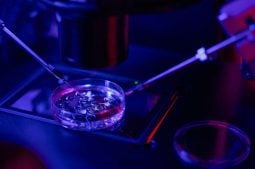
Being able to control our fertility is a hugely positive advance. It gives us freedom of choice in career, social and relationship issues that previous generations of women could only have dreamt of. But what if the freedom to access contraception turned out to be a double-edged sword? Suppose it actually damaged our freedom to become pregnant when the time is right!
There are plenty of urban myths out there on the subject of contraception and fertility. For women in their fertile years it can’t help but be an issue, whatever personal choices we make. In this article we seek to sort out fact from fiction and untangle some of the commonly held threads of belief about contraception and fertility. In particular, we take a look at the different contraceptive methods and their potential impact.
How long does it take to conceive anyway?
First of all, we need to take a look at how easy or difficult it is to get pregnant naturally, quite apart from any contraception considerations. The fact is that human beings are not enormously fertile. The natural rate of fertility for a woman who is not using any contraceptives is around 10% per month, so in any given month you would have a 1 out of 10 chance of conceiving, which is not very high. There are other factors as well, such as your partner’s fertility and other lifestyle matters which can reduce fertility, such as weight, some medications, lack of sleep and even stress.
Another important issue is your age. If you have avoided pregnancy for a number of years, obviously you are older than when you started. So, given that a woman’s fertility starts to decline naturally from about the age of 25, you could well be less fertile than before, regardless of contraception. For someone coming off birth control, especially a form which involves hormonal medication, it could be an easily made mistake to ‘blame’ the lingering effects of hormonal disruption for a failure to become pregnant within the first few months.
There is a final factor to bear in mind when forming a judgement about the impact of your contraceptive choice on future fertility. When you have never actively tried to conceive, you may well not know whether you are fertile or not. Many women who take a hormonal contraceptive in order to regularise an erratic menstrual cycle assume that the regularity of their periods while on the medication shows that their cycle is normal. This is not necessarily the case. Birth control pills do not ‘cure’ an irregular cycle, but disguise it by creating a kind of fake regularity. A woman who had an irregular cycle before starting the pill will probably return to the same after stopping.
Do contraceptives make it harder to get pregnant afterwards?
As every woman who uses contraceptives knows, there are many different kinds. Most of them have no effect on subsequent fertility but there are one or two exceptions, including sterilisation, which is permanent. Broadly speaking, the main types of contraceptive are hormonal and barrier methods.
Hormonal contraceptives
Numerous studies have shown that your likelihood of conceiving after stopping taking hormonal contraceptives is the same as a woman who has never used them. One piece of research studied women who had taken hormonal birth control for a period of seven years. It found that over 21% of women conceived in their first fertile month and that almost 80% were pregnant within one year. This is similar to the conception odds for the general population. These odds cover use of the combined pill, progesterone-only pill, vaginal ring, contraceptive implant or contraceptive patch. For all of these methods, the consensus is that your fertility will usually return to normal within the first month of stopping, occasionally stretching to three months.
The contraceptive ‘shot’
The one exception is the contraceptive ‘shot’, a Depo-Provera injection. In this case it is more difficult to predict when all of the medication has left the body, and so there could be a delay in the return to normal fertility. Usually the normal menstrual cycle returns within six to twelve months of the last injection, but it can take almost two years in some rare cases. This is why doctors are required to advise patients considering this type of contraceptive not to choose this method if they are intending to start a family in the near future.
Barrier and other methods of contraception
Male or female condoms, the diaphragm or cap or an IUD have zero impact on future fertility, which will return the normal the moment you stop using them.
What if you don’t become pregnant after ceasing contraception?
First of all, don’t worry! We have seen that even for women who have never used contraception, it can take time to conceive. As a rule of thumb, in your early twenties, you have around a 96% chance of conceiving within a year, in your late twenties an 86% chance, and in your early thirties, still a high chance at 86%
If after a year of trying there’s still no luck, then it’s time to seek medical help and have some tests to identify whether or not there is a problem. For women of 35 and over, the usual advice is to seek assistance after six months of trying, because the time during which assistance can be most effective is decreasing.
Getting help from IVI
There are many assisted reproduction techniques, maybe you´ve heard about artificial insemination or the well-known IVF technique but there are several others. You would, of course, need a consultation and tests and to arrive at a recommendation on which is the most appropriate in your case. Why not browse our website to see the range of treatments available and familiarise yourself with them? When you feel ready, get in touch with us at IVI and make an appointment for your first visit.





Comments are closed here.